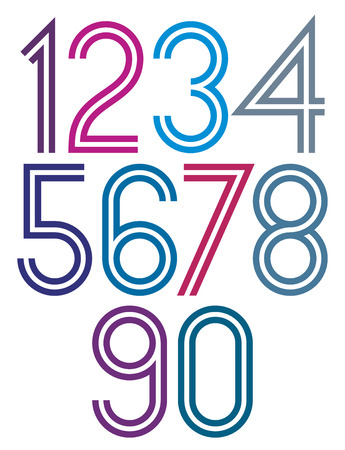1. The Prevalence of Teeth-Loss Dreams in American Culture
Dreams about losing teeth are surprisingly common among Americans. Many people wake up from these dreams feeling unsettled, wondering what their subconscious is trying to tell them. In the United States, this type of dream has become a well-known phenomenon, often referenced in movies, television shows, and even casual conversations.
How Common Are Teeth-Loss Dreams?
According to various sleep studies and dream surveys, a significant portion of Americans report experiencing teeth-loss dreams at least once in their lives. Some reports suggest that around 20% to 40% of adults in the U.S. have had such a dream. These numbers show just how widespread this dream theme really is.
| Age Group | Percentage Reporting Teeth-Loss Dreams |
|---|---|
| Teens (13-19) | 22% |
| Young Adults (20-35) | 37% |
| Middle-Aged Adults (36-55) | 33% |
| Seniors (56+) | 18% |
The Cultural Significance of Teeth-Loss Dreams
In American pop culture, dreams about losing teeth are often linked to feelings of anxiety or insecurity. You might hear someone jokingly mention having a “teeth falling out” dream before a big presentation or after making a tough decision. This shared experience makes it easy for people to connect and talk about their worries without feeling alone.
Common Associations in American Dream Culture
- Anxiety: Many believe these dreams reflect stress about work, relationships, or life changes.
- Insecurity: Some interpret teeth-loss dreams as a sign of self-doubt or concern over appearance.
- Losing Control: Its also common to see these dreams as representing a fear of losing control over ones life or future.
Teeth-Loss Dreams in Media and Everyday Life
From sitcom episodes to online forums like Reddit and Quora, stories about teeth falling out during dreams pop up everywhere in American media. People share their experiences and seek meaning, making this dream topic both relatable and intriguing across generations.
2. Symbolism and Psychological Interpretations
Dreams about losing teeth are surprisingly common in the United States, and many Americans wake up wondering what these unsettling dreams might mean. Psychologists and dream analysts have explored this theme for years, linking it to deep emotions that are often connected to our everyday lives. Below, we take a closer look at what losing teeth in dreams can symbolize, especially when viewed through an American cultural lens.
Why Do We Dream About Losing Teeth?
There isn’t just one answer to why people dream about their teeth falling out. For many, these dreams happen during stressful periods or major life changes. In American culture, where image and self-presentation often feel important, dreams about losing teeth can bring up strong feelings about how others see us or how we see ourselves.
Common Psychological Themes Linked to Teeth-Loss Dreams
| Theme | Description | American Context |
|---|---|---|
| Anxiety | Feeling worried or stressed about the future. | Work pressure, financial worries, or social expectations. |
| Helplessness | A sense of losing control over life events. | Fear of not meeting goals or being unable to change a situation. |
| Insecurity | Doubts about self-worth or appearance. | Cultural emphasis on looks and success fuels these fears. |
| Self-Image Issues | Concerns about how we present ourselves to others. | The importance of confidence and “putting your best face forward.” |
What Makes These Dreams So Powerful?
Losing teeth is a physical change that’s hard to ignore. In American society, where having a healthy smile is often tied to confidence and first impressions, dreaming about tooth loss can stir up real worries about embarrassment or being judged by others. It’s not just about teeth—it’s about feeling exposed or vulnerable in front of people who matter to us.
Psychological Interpretations in Everyday Life
If you’re facing big changes—like starting a new job, going through a breakup, or moving to a new city—you might notice more dreams like this. These situations can trigger feelings of anxiety and insecurity that show up in your sleep. Remember, these dreams don’t predict actual tooth loss; instead, they reflect emotional challenges you might be dealing with right now. Recognizing these patterns can be the first step toward understanding yourself better and finding ways to handle stress in your waking life.

3. Self-Image and Societal Pressures
The Role of Appearance in American Culture
In the United States, how we look often feels like a big part of who we are. Many people worry about their appearance, and this can show up in their dreams—especially dreams about losing teeth. These dreams can reflect deep concerns about aging, beauty, and self-worth.
Why Teeth Matter: More Than Just a Smile
Teeth are tied to how youthful or healthy we appear. Losing teeth in a dream might mean someone is worried about looking older or not fitting in with societys ideas of what is attractive. This fear is common in American culture, where a bright, perfect smile is often seen as a symbol of success and confidence.
Media Influence and Social Standards
From TV shows to social media, Americans are surrounded by images of flawless celebrities and influencers. These images set high standards that can make everyday people feel insecure about their own looks. When these pressures build up, its not unusual for them to surface as dreams about losing teeth.
Common Self-Image Concerns Reflected in Teeth-Loss Dreams
| Concern | How It Appears in Dreams | Cultural Influence |
|---|---|---|
| Aging | Dreaming of teeth falling out as a sign of getting older | Youthfulness valued in media and advertising |
| Self-Worth | Sensitivity to being judged on looks or imperfections | Pressure to meet beauty standards set by celebrities and influencers |
| Social Acceptance | Anxiety over being embarrassed or rejected due to appearance changes | Importance of first impressions in American society |
Understanding the Impact
Feeling anxious about looks is very common in America. The constant exposure to idealized images can make anyone second-guess their own worth or attractiveness. Teeth-loss dreams are just one way these worries show up during sleep, giving us clues about how much outside pressure we might be feeling day to day.
4. Stress, Life Transitions, and Dream Triggers
How Major Life Changes Spark Teeth-Loss Dreams
If you’ve ever woken up from a dream about your teeth falling out, you’re not alone—especially in the United States, where life’s fast pace and constant change can easily spill over into our subconscious. According to dream experts, these dreams often pop up during times of stress or big transitions. For many Americans, changes like starting a new job, moving to a different city, ending a relationship, or even sending kids off to college can trigger these unsettling dreams.
Common Triggers for Teeth-Loss Dreams
| Life Event | Why It Triggers the Dream | Example Scenario |
|---|---|---|
| Job Change or Work Stress | Uncertainty and pressure about performance or fitting in can create anxiety that shows up as teeth-loss dreams. | An employee gets promoted but worries about meeting expectations and dreams their teeth are crumbling. |
| Relationship Changes | Breakups, divorces, or even getting engaged can stir fears about acceptance and self-image. | A person recently divorced starts dreaming of losing teeth, reflecting feelings of vulnerability. |
| Moving or Relocating | The stress of adapting to a new environment often triggers insecurity-related dreams. | A college student moving across the country has repeated teeth-loss dreams before settling in. |
| Financial Worries | Money troubles heighten anxiety and a sense of loss of control. | An American family facing unexpected bills sees both parents having similar dreams. |
Expert Insights on Stress and American Dream Culture
Dream analyst Dr. Kelly Bulkeley notes that Americans are particularly prone to these dreams because “our culture values confidence and achievement—so when people feel unsure or overwhelmed by change, their dreams reflect those insecurities.” Psychologist Lauri Loewenberg adds that “teeth symbolize power and self-image. Losing them in dreams often means you’re stressed about how others see you or how well you’re handling life’s challenges.” In American society, where first impressions matter and personal success is highly prized, it’s no surprise that stressful transitions commonly show up as dramatic teeth-loss dreams.
5. Coping Strategies and Interpretations
Understanding Your Teeth-Loss Dreams
Dreams about losing teeth can be unsettling, but in American dream culture, they often point to common feelings like stress, insecurity, or worries about self-image. Before panicking, remember that these dreams are a normal way for your mind to process emotions. Here are some practical, culturally relevant strategies to help you address the underlying anxieties that might be causing these dreams.
Everyday Tips for Managing Anxiety and Insecurity
| Strategy | How It Helps | American Context Example |
|---|---|---|
| Journaling Your Thoughts | Helps process emotions and track dream patterns. | Keep a notebook by your bed and jot down how you felt before going to sleep. |
| Practicing Mindfulness | Lowers daily stress and anxiety levels. | Try a meditation app like Calm or Headspace for 5 minutes each morning. |
| Open Communication | Builds support from friends and family. | Share your dream with someone you trust—sometimes just talking helps! |
| Self-Care Rituals | Boosts confidence and self-image. | Treat yourself to something you enjoy, like your favorite coffee shop or a walk in nature. |
| Limiting Stress Triggers | Makes it easier to sleep peacefully. | Avoid doomscrolling on social media before bed; read a book instead. |
Cultural Considerations: The American Perspective on Dream Interpretation
In the U.S., people often look at dreams as personal messages rather than supernatural signs. If you’re dealing with job changes, relationship shifts, or financial stress—common themes in American life—it’s natural for these issues to show up in your dreams. Try not to see teeth-loss dreams as omens, but as signals from your subconscious asking you to take care of yourself.
When Should You Seek Professional Help?
If you notice these dreams happening frequently or if they cause ongoing distress during the day, consider reaching out to a professional therapist or counselor. In the United States, therapy is widely accepted as a healthy tool for working through emotional struggles. You can talk to your primary care doctor for a referral or use online resources like Psychology Today’s therapist directory. Don’t hesitate to seek help—mental health is just as important as physical health!


